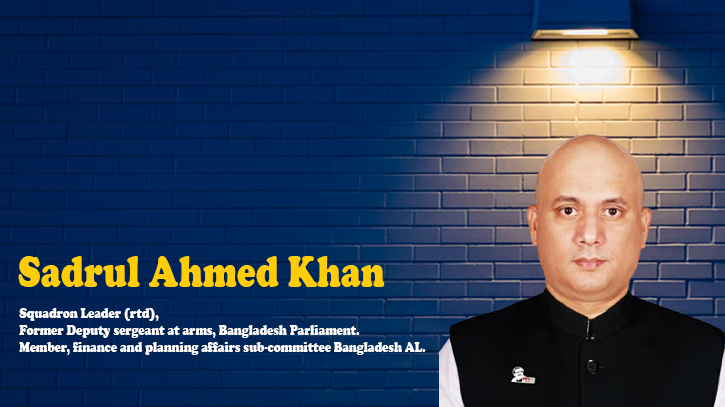
Photo: Messenger
On December 6, 1971, Kulaura Upazila was freed from the Pakistani Army. On this day, the Pakistani invaders fled from Kulaura. The dark green flag emblazoned with the red blood of the victorious went up in the sky of Kulaura.
Wishing the people of Kulaura on this great victory day and recalling with deep respect to all the freedom fighters including my father Abdul Latif Khan, president of Kulaura Upazila Awami League, the fearless barrister Abdul Montakim Chowdhury of Kulaura, former MP Abdul Jabbar, Zainal Abedin, Abdul Muktadir Chowdhury Zubed, Mukim Uddin Khan, Mia Thakur, Nawab Ali Safdar Khan Raja, Nawab Ali Sarwar Khan Chunnu, Lutfur Rahman Chowdhury Helal, Mamruz Bakhsh Motu, Ashkir Ali, Syed Jamal, Abdul Manaf.
At the end of November 1971, the Mukti Bahini devised a strategic plan to liberate the Gazipur tea garden in Kulaura. On November 30, the Liberation Army successfully ensnared 75 Razakars and 5 Pakistani soldiers who were stationed at the Kakura tea garden. The attack on the Gazipur and Kulaura fronts primarily unfolded through Juri's Phultala-Sagarnal. Simultaneously, an offensive was launched via the Chatlapur BOP. This operation was orchestrated through Namuja, Hajipur, and Shamsernagar, under the leadership of freedom fighter Lt. Waqiuzzaman in the Kailashahar sub-sector, operating under Sector Commander Major CR Dutta of Sector No. 4. The Liberation Army's three-pronged assault left the Pakistani forces bewildered and disoriented.
The Gazipur tea garden in Kulaura became the focal point of the most intense battle in this region. Upon arrival in Gazipur, the Mukti Bahini encountered significant resistance. As the liberation forces advanced from the Kakura tea garden towards Gazipur on December 1, they faced relentless retaliatory fire from Pakistani troops. The pivotal clash occurred on the night of December 3.
On December 3, the collaboration between freedom fighters and the Indian armed forces formed the Allied Forces, significantly accelerating the pace of the conflict. The Gazipur tea plantations served as a stronghold for the Pakistani Army during the war, commanded by Pakistani Major Abdul Wahid Mughal. The garden housed a battalion of soldiers armed with a substantial arsenal. Conversely, there existed a Mukti Bahini camp at Chonga House, directly opposite Gazipur.
During the night of December 3, six regiments of the Indian Army's Rajput regiment launched an assault but faced formidable Pakistani resistance, resulting in the demise of the Allied company commander, Indian Major Sayam Kelkar, and the loss of several soldiers. Subsequently, on the night of December 4, under the command of Indian Lt. Col. AB Harkil and supported by 4-5 Gorkha Rifles, the Allied forces initiated another attack. Led by Mukti Bahini leaders MA Mumit Asuk, Mohit Lal Som, and others, the Allied forces launched a relentless assault. Following a fierce battle, the Pakistani forces faltered and eventually abandoned their position. Reports indicated that 30 Pakistani soldiers were killed, with 40 sustaining injuries. They left the bodies of 15 soldiers at Ghazipur Tea Garden, while retrieving the remains of the other 15 soldiers. That same day, the Allied forces reached Kulaura in the evening, causing the Pakistanis to flee via Kulaura-Brahmanbazar road towards Sylhet. Finally, on December 6, 1971, Kulaura was liberated from the clutches of the Pakistani army.
The entire upazila's populace erupted in jubilation at their newfound liberation, chanting the rallying cry of 'Joy Bangla'.
The writer is Squadron Leader (rtd), Former Deputy sergeant at arms, Bangladesh Parliament. Member, finance and planning affairs sub-committee Bangladesh Awami League.
Messenger/Sun Yath








